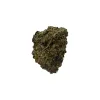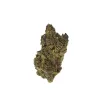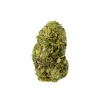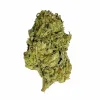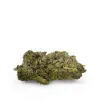Caryophyllene, a prominent terpene known for its unique properties and potential therapeutic benefits, holds a special place in the world of natural compounds.
In this article, we delve into the frequently asked questions about caryophyllene, its diverse effects, and its presence in various botanical sources. From its molecular structure to its potential impacts on health and well-being, we'll uncover the essential aspects of this intriguing compound.
What is the Caryophyllene Terpene?
Caryophyllene, a captivating terpene renowned for its spiciness, resides within various herbs and spices, including black pepper, basil, and oregano. When present in cannabis strains, it imparts a warm and tangy aroma reminiscent of cinnamon and cloves.
This terpene's distinctive characteristic lies in its intriguing interaction with the human body's endocannabinoid system, particularly its affinity for binding with CB2 receptors, offering a range of potential medicinal advantages.
Also known as beta-caryophyllene or BCP, this terpene is not only found in aromatic oils like rosemary and clove but is also commonly present in nature within hops, cloves, black pepper, oregano, cinnamon, and basil.
The presence of a cyclobutane ring in its molecular structure is a rarity in nature and sets it apart from other known cannabis terpenes.
The intriguing aspect of caryophyllene lies in its ability to effortlessly bind to CB2 receptors within the peripheral endocannabinoid system of the human body. This unique feature sets it apart from other terpenes, as it can activate cannabinoid receptors, particularly CB2 receptors, without inducing the euphoric effects typically associated with cannabis.
Caryophyllene's activation of CB2 receptors is linked to benefits such as inflammation reduction, making it a valuable compound in the realm of potential therapeutic applications.

What Does Caryophyllene Do?
Caryophyllene's affinity for CB2 receptors contributes to its anti-inflammatory properties. By binding to these receptors located throughout the peripheral organs, it can help regulate inflammatory responses in the body.
This mechanism suggests potential relief from various conditions characterized by inflammation, such as inflammatory bowel disease and arthritis. Additionally, its ability to modulate pain perception may offer a natural approach to pain management.
Research indicates that caryophyllene holds promise in addressing mood disorders. Its interaction with CB2 receptors may play a role in regulating neurotransmitter activity, potentially leading to anxiety and depression reduction.
This opens avenues for exploring caryophyllene's therapeutic potential as a complementary approach to mental health support.
As scientific exploration into this terpene continues, it holds promise for offering natural solutions to various health challenges and enhancing overall well-being.
Which Strains Contain the Most Caryophyllene?
High levels of caryophyllene are typically associated with the experience of a fast-acting and heavy high. This terpene will give cannabis an earthy, musky, clove-like aroma and flavor. If you notice your favorite strain has a woodsy, earthy flavor or smell, it’s most likely high in caryophyllene.
|
Strain |
Description |
Additional Information |
|---|---|---|
|
Bubba Kush |
Classic indica used for pain relief and sleep. Has an earthy, coffee flavor. |
Has a relaxing body high that eases aches and pains. Provides deep, tranquil sleep. |
|
Sour Diesel |
Sativa-dominant hybrid known for its energizing effects. Has a sour, diesel-like aroma. |
Boosts creativity and focus. Provides an energetic, buzzy head high. |
|
OG Kush |
Iconic hybrid with relaxing, euphoric effects. Flavor is piney and woody. |
Induces relaxation and happiness. Known for its strong, long-lasting high. |
|
Chemdawg |
Popular hybrid that provides a strong, psychedelic mental high. |
Triggers a spaced-out, cerebral head high. May cause auditory and visual distortions. |
|
Girl Scout Cookies |
Indica-leaning hybrid that delivers euphoria with mental stimulation. Sweet and earthy flavor. |
Provides a blissful, mellow high. Uplifts mood and eases stress. |
|
Green Crack |
Energizing sativa-dominant strain with citrusy, tangy flavor. Uplifting and creative effects. |
Sharpens focus and boosts productivity. Propels the mind into an imaginative, buzzy headspace. |
Caryophyllene Terpene Role and Effects
Caryophyllene, a prominent terpene found in an array of botanical sources including herbs, spices, and cannabis, offers a distinctive profile of effects and potential benefits due to its interaction with the body's endocannabinoid system.
One of the standout features of caryophyllene is its ability to selectively bind with CB2 receptors in the endocannabinoid system. Unlike most terpenes, caryophyllene's interaction with CB2 receptors can trigger various responses in the body, contributing to its potential therapeutic effects.
Some benefits of caryophyllene terpene include:
-
Offers natural pain management potential
-
May alleviate conditions like arthritis and inflammatory bowel disease
-
Interaction with CB2 receptors suggests mood-modulating effects
-
Potential for reducing anxiety and depression symptoms
-
Potential in addiction treatment strategies
-
Associated with antioxidant properties
-
Combats oxidative stress and cell damage
-
Contributes to overall wellness
-
Potential role in reducing gene stress
Caryophyllene's interaction with CB2 receptors shapes its multifaceted effects, from regulating inflammation and mood to managing addiction and supporting cellular health. As scientific understanding deepens, this terpene holds promise for various health applications and enriching overall well-being.
The Caryophyllene Terpene in Cannabis
Caryophyllene imparts a spicy, woody, and slightly peppery aroma to cannabis strains. This terpene adds depth to the sensory experience of cannabis consumption, contributing to the diverse spectrum of scents that range from fruity and citrusy to earthy and musky.
One of the most remarkable aspects of caryophyllene is its ability to interact with the endocannabinoid system. While most terpenes do not directly engage with cannabinoid receptors, caryophyllene selectively binds to CB2 receptors, creating a unique interaction.
This interaction suggests potential synergistic effects with other cannabinoids, enhancing the overall impact of the cannabis plant.
Cannabis strains rich in caryophyllene may offer enhanced therapeutic benefits due to their interaction with CB2 receptors. The caryophyllene terpene has effects that can include anti-inflammatory properties, pain relief, and mood regulation.
What is Caryophyllene in Weed?
Cannabis enthusiasts and product developers recognize the value of caryophyllene-rich strains. The terpene's potential benefits have led to its incorporation in various cannabis-derived products, including topicals, tinctures, and concentrates, allowing consumers to access its potential therapeutic effects through different consumption methods.
Caryophyllene is a terpene that contributes not only to the aromatic and flavor profiles of cannabis strains but also to their potential therapeutic effects.
Its distinctive spicy and earthy notes create a sensory experience that adds depth to the world of weed, making each strain a unique journey for enthusiasts seeking diverse encounters with this versatile plant.
Is Caryophyllene Polar or Non-Polar?
Caryophyllene, a terpene with the molecular formula C15H24, is characterized as a non-polar molecule. The structure of caryophyllene consists mainly of carbon and hydrogen atoms, and it lacks polar functional groups like hydroxyl or amino groups that are capable of forming hydrogen bonds with water molecules.
The absence of charged or electronegative groups in caryophyllene's structure contributes to its non-polar nature. As a result, caryophyllene exhibits limited solubility in water due to the mismatch in polarity between the molecule and the water molecules.
Instead, caryophyllene tends to dissolve more readily in nonpolar solvents such as oils, fats, and lipids.
Understanding the polarity of caryophyllene is significant in various contexts, including its interactions with natural sources like plants and its role in products such as essential oils.
Additionally, the nonpolar nature of caryophyllene is relevant to its behavior in biological systems, potentially affecting its interactions with cell membranes and other nonpolar components.
Is Caryophyllene Safe?
Caryophyllene is generally recognized as safe (GRAS) by the U.S. Food and Drug Administration (FDA) for use in food products. It has a long history of use in culinary applications due to its distinctive flavor and aroma.
Research and scientific studies have contributed to the understanding of caryophyllene's safety profile. As a dietary cannabinoid, caryophyllene has been extensively studied for its potential health benefits, particularly its interactions with the endocannabinoid system and its potential therapeutic effects.
Unlike some other cannabinoids found in cannabis, caryophyllene does not exhibit psychoactive properties because it selectively binds to the CB2 receptor, which is more abundant in peripheral tissues and is associated with anti-inflammatory and analgesic effects.
Caryophyllene's safety extends beyond its use as a dietary supplement. Studies have investigated its potential medicinal benefits in various health conditions, including colitis, osteoarthritis, diabetes, cerebral ischemia, anxiety, depression, liver fibrosis, and even cancer.
These studies have shown promising results regarding its potential as a therapeutic agent, further emphasizing its safety profile.
It's important to note that while caryophyllene is considered safe when used within reasonable dietary and supplement levels, individual sensitivities or allergies can vary.
As with any substance, including natural compounds, it's advisable to consult with a healthcare professional before introducing caryophyllene or any new supplement into your routine, especially if you have pre-existing health conditions, are taking medications, are pregnant or nursing, or have concerns about potential interactions.
Health Benefits of Caryophyllene
Caryophyllene, a bicyclic sesquiterpene found abundantly in various plants, has emerged as a natural powerhouse with promising health benefits. Its multifaceted effects on animal cells have garnered attention, positioning it as a potential therapeutic tool for a range of chronic disorders.
Caryophyllene's interaction with specific receptors and its role in modulating inflammatory responses and metabolic processes make it a captivating avenue for exploring natural wellness benefits, including:
-
Anti-Inflammatory Champion
-
CB2 Receptor Interaction
-
PPAR Modulation
-
Metabolic Marvels
-
Neurological Nourishment
In summary, caryophyllene emerges as a captivating natural compound with a spectrum of health benefits. Its anti-inflammatory, CB2 receptor interaction and PPAR modulation contribute to its potential role in mitigating chronic disorders.
From metabolic challenges to neurological struggles, caryophyllene's diverse effects paint a picture of a natural ally in the pursuit of overall well-being.
As research continues to unveil its intricate mechanisms, caryophyllene holds the promise of harnessing nature's therapeutic potential for the betterment of human health.
Does Caryophyllene Cause Anxiety?
Caryophyllene is generally believed to have anxiety-reducing properties. It interacts with the body's endocannabinoid system, specifically CB2 receptors, which could help in reducing stress and anxiety.
Research suggests that caryophyllene's effects are calming, making it a potential natural option for anxiety relief. However, individual responses may vary, and consulting a healthcare professional before use is recommended, especially if you have health conditions or take medications.

Caryophyllene and Mood Enhancement
The potential of caryophyllene to enhance mood aligns with the growing interest in natural solutions for emotional well-being. Its ability to interact with the endocannabinoid system, coupled with its low likelihood of causing psychotropic effects, positions caryophyllene as a candidate for those seeking a natural mood boost.
Caryophyllene's mood-enhancing effects could complement other wellness practices. From stress reduction to relaxation techniques, incorporating caryophyllene-rich plants or products into daily routines might enhance emotional resilience and contribute to an improved outlook.
In essence, caryophyllene emerges as a natural ally in the realm of mood enhancement. Its interaction with CB2 receptors and potential influence on neurotransmitters invites exploration into the world of natural mood elevation.
As research continues to illuminate its mechanisms and effects, caryophyllene holds the promise of providing a botanical pathway to a brighter emotional landscape.
Molecular Structure: Unveiling Caryophyllene's Configuration
Caryophyllene's structure is a captivating arrangement that underlies its unique properties. With its bicyclic rings and double bonds, caryophyllene interacts with biological receptors like CB2, potentially yielding therapeutic effects. Its chiral nature and distinct aroma add to its complexity.
This configuration holds the key to understanding caryophyllene's interactions and unlocking its potential for promoting wellness and sensory experiences.
Caryophyllene Handling and Considerations
Moderation is key when it comes to caryophyllene consumption. Excessive intake might lead to potential effects such as drowsiness, emphasizing the importance of adhering to recommended doses.
As with any natural compound, it's always wise to consult your healthcare provider before making significant changes to your caryophyllene intake.
Is Caryophyllene Toxic?
The good news is that caryophyllene is generally considered safe for most individuals when used responsibly and within recommended limits.
Is Caryophyllene Flammable?
Indeed, caryophyllene falls under the category of flammable substances. Thus, it's advisable to avoid exposing it to open flames or high temperatures to ensure safety.
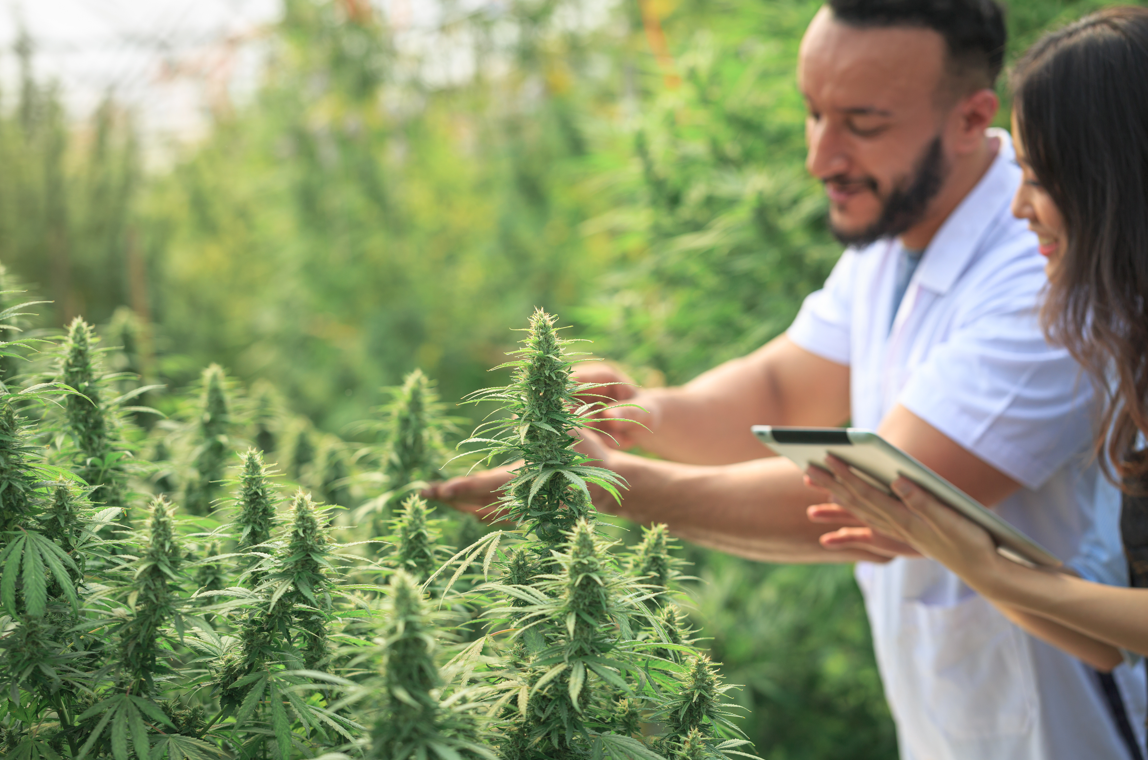
A Conclusion on Caryophyllene
Caryophyllene, a terpene with its signature aroma and potential health-enhancing properties, continues to captivate the attention of researchers and enthusiasts alike. Its prevalence in various plants and its potential effects on pain management and relaxation make it a compound of great interest. As our understanding of caryophyllene grows through scientific inquiry, we uncover new dimensions of its effects and applications, showcasing its potential to contribute to both sensory experiences and holistic well-being.



